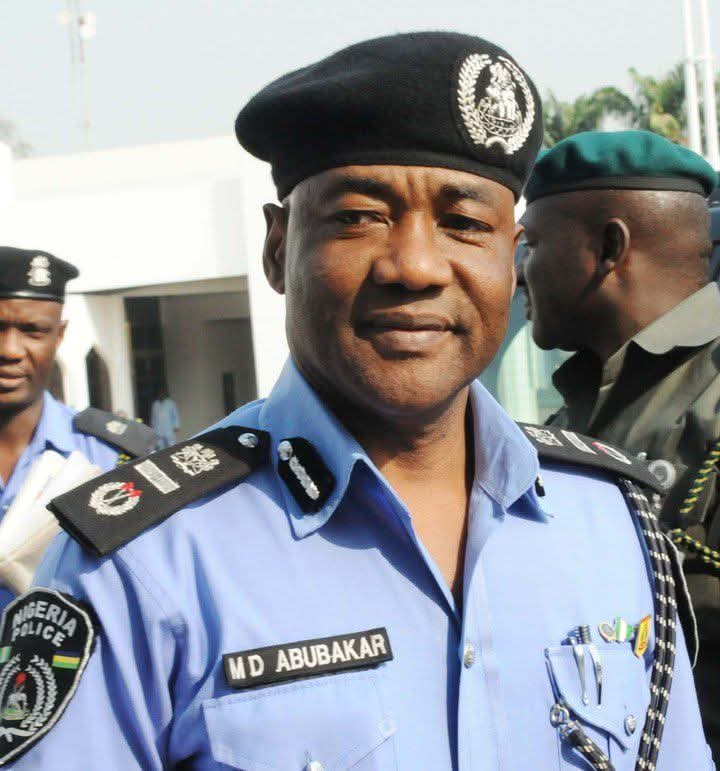Former Inspector General of Police and ex-Commissioner of Police, Lagos State Command, Mohammed Dikko (MD) Abubakar, has recounted an extraordinary and somewhat humorous incident from his days in Lagos, when unsuspecting junior officers “arrested” him without realizing who he was.
In a detailed narration, Abubakar described how a routine Saturday morning turned into an unforgettable lesson in humility, leadership, and the importance of discipline.

An Early Start to a Busy Saturday
As Commissioner of Police in Lagos, Abubakar explained that his Saturdays usually began at 10:00 a.m., with official engagements scheduled later in the morning. But on this particular day, he woke up unusually early—around 6:00 a.m.—and decided to head to the office well ahead of time.
Driving his Jeep along Herbert Macaulay Way, he opted to make unscheduled stops at police divisions and checkpoints, a personal practice he adopted to assess officers’ performance firsthand without prior notice.

The Unexpected Confrontation
At one checkpoint, a group of policemen on duty waved him down. A young constable approached the vehicle with a mixture of authority and suspicion.
“Good morning, young man. Where are you going in your father’s Jeep?” the officer asked.
The constable then requested Abubakar’s vehicle documents and name. When Abubakar simply replied, “My name is Mohammed,” the constable insisted that he produce an identity card.

Playing along, the CP challenged him to produce his ID first. The constable couldn’t. Instead, he called for his team leader—a Sergeant—who repeated the same demand without offering his own identification.
After a brief standoff, they decided to take Abubakar to the Yaba (Panti) Police Station.
Tensions Rise at the Station
Arriving at the station, Abubakar found no available parking spaces except the one reserved for the Divisional Police Officer (DPO). He parked there, prompting the constable to bark at him for occupying the DPO’s space.
Inside, they led him to an Assistant Superintendent of Police (ASP), who, dressed casually in shorts, ordered him to step inside his office. Abubakar refused, pointing out that the officer was not in uniform. A minor physical tussle followed before the ASP got a closer look at the man before him.
Meanwhile, an elderly man inside the station quietly slipped into the DPO’s office to compare Abubakar’s face with the framed photograph on the wall. Moments later, he confirmed the unthinkable—the officers had just “arrested” the Commissioner of Police himself. The man quickly slipped out through a window to avoid being caught in the unfolding drama.

Shock, Panic, and Realization
The sergeant who had brought Abubakar in was bewildered as whispers spread through the station. One officer discreetly informed him that the man they had in custody was indeed the Commissioner of Police.
In an almost comical twist, the ASP in shorts also bolted out of the room, through the same window.
Shortly after, the Area Commander called Abubakar to confirm the chaos. By that time, the DPO, the ASP, and all officers involved in the incident had already been placed in a cell, awaiting the Commissioner’s decision.

From Anger to Mercy
Abubakar admitted that his initial reaction was anger, especially since he had visited that same station just a week earlier to caution them about their unprofessional conduct.
However, his stance softened by Monday morning, when over 100 family members thronged his office, pleading for leniency. One elderly man begged on behalf of one of the officers, explaining that he was the only policeman from their village—dismissing him would leave their community without any representation in the Force.
Abubakar said the appeals made him reflect deeply: dismissing a single officer could adversely affect 30 or more dependents, including parents, siblings, and extended family.

A Leadership Lesson
In the end, he chose not to dismiss any of the officers. Instead, he used the incident as a powerful deterrent for others under his command.
“Leadership is not always about punishment. Sometimes, mercy speaks louder—and teaches a deeper lesson,” Abubakar concluded.




